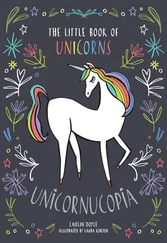Rob Doyle - This is the Ritual
Здесь есть возможность читать онлайн «Rob Doyle - This is the Ritual» весь текст электронной книги совершенно бесплатно (целиком полную версию без сокращений). В некоторых случаях можно слушать аудио, скачать через торрент в формате fb2 и присутствует краткое содержание. Год выпуска: 2016, Издательство: Bloomsbury Publishing, Жанр: Современная проза, на английском языке. Описание произведения, (предисловие) а так же отзывы посетителей доступны на портале библиотеки ЛибКат.
- Название:This is the Ritual
- Автор:
- Издательство:Bloomsbury Publishing
- Жанр:
- Год:2016
- ISBN:нет данных
- Рейтинг книги:5 / 5. Голосов: 1
-
Избранное:Добавить в избранное
- Отзывы:
-
Ваша оценка:
- 100
- 1
- 2
- 3
- 4
- 5
This is the Ritual: краткое содержание, описание и аннотация
Предлагаем к чтению аннотацию, описание, краткое содержание или предисловие (зависит от того, что написал сам автор книги «This is the Ritual»). Если вы не нашли необходимую информацию о книге — напишите в комментариях, мы постараемся отыскать её.
This is the Ritual — читать онлайн бесплатно полную книгу (весь текст) целиком
Ниже представлен текст книги, разбитый по страницам. Система сохранения места последней прочитанной страницы, позволяет с удобством читать онлайн бесплатно книгу «This is the Ritual», без необходимости каждый раз заново искать на чём Вы остановились. Поставьте закладку, и сможете в любой момент перейти на страницу, на которой закончили чтение.
Интервал:
Закладка:
3At twenty-four he published his first short story, in a Trinity College journal. ‘Father Coward’ is the confessional monologue of a north Dublin priest who secretly harbours heretical notions concerning the true, chilling significance of the visions at Fatima.
4Thomas Duddy, ‘Bludgeoning the Muse — the Transgressive Anti-Fiction of Killian Turner’, Review of Contemporary Literature , Issue 68, June 2002.
5For a period, Turner even seems to have entertained the belief that he himself was the reincarnation of Bataille: ‘Not figuratively, but in the full meaning of spirit recast, power enfleshed. . There are nights when, woken by the howl of a junkie down in Boxhagener Strasse or the rattle of a late U-Bahn train, I walk to the darkened mirror, and from it peer the radiant, saintly eyes of Georges Bataille.’ ( Visions of Cosmic Squalor/The Upheaval , Anti-Matter, London.) However, as Bataille lived until 1962, and was therefore Turner’s contemporary for fourteen years, it is difficult to understand how Turner even considered holding this eccentric notion.
6Admittedly, while all of the late Turner is challenging, some of the fragmentary work of his final years, especially certain of the pieces collected in Visions of Cosmic Squalor/The Upheaval , can only be described as unhinged. And yet, even the most aberrant of his work has a quality of dazzling entertainment. Consider the sprawling, unfinished essay, worked on during the early eighties and unpublished at the time of his disappearance, in which Turner asserts that Joyce’s final novel, the monstrous Finnegans Wake , is nothing less than a coded transmission intended to trigger the apocalypse. According to Turner (and this has been ridiculed by the few scholars who have bothered to address the issue at all), while Joyce was living in Trieste, he was contacted by a sinister group of Cabbalistic Jews who, given impetus by the events of the First World War, were promulgating an eschatological doctrine in which language itself figured as a kind of super-weapon, radiating metaphysical contaminants through the media of literature, radio and cinema. Joyce, writes Turner, most likely considered the conspiring Cabbalists as nothing more than a picturesque nuisance. However, he goes on, the Cabbalists submitted an unwitting Joyce to a refined form of hypnotism, implanting him with the apocalyptic codes, syntactic rhythms and linguistic motifs which their ancient studies had revealed to them as the ammunition of cosmic disarray — and which, according to Turner, were to surface, unbeknownst to Joyce, across the expansive tapestry of his most mystifying novel.
7A certain lightness of tone, unusual in Turner’s work, can be detected in passages and diary entries written during these months, as if the happiness inspired by his friendship with Mother D could not but seep through into Turner’s authorial voice.
8Thomas Duddy, ‘Ecstatic Slaughter: Human Sacrifice in the Work of Georges Bataille and Killian Turner’, Radical Philosophy , Issue 116, Winter 1999.
Paris Story
It happens like this. While living in Paris, X writes a novel based on his experiences as an expat. The novel receives interest from several publishers, but none of them is finally willing to take it on. Meanwhile, X’s friend K, who is also living in Paris, completes her first collection of short stories. K is signed up by a literary agent and, within a month, the collection is sold to a major publisher.
While X has always been encouraging of K’s writing, in private he considers it sentimental storytelling, of no great literary moment. X begins working on another novel, but progress is slow and difficult. Meanwhile, K’s collection is published and is an immediate success. K begins appearing in newspapers and on radio shows. X and K still meet for coffee, or drink in wine bars with their friends, and take walks in the Jardin du Luxembourg. While they walk, K admits to X how pleasant it is to receive the media attention, yet ultimately how silly and inconsequential. Maybe, maybe not, thinks X.
X plunges on with his new novel. It is set partly during the French-Algerian war (he has stacks of books borrowed from the library), and partly in contemporary Paris, among expat writers like himself and K. In short, it is a more ambitious novel than his first. He soon feels overwhelmed: he has lost the thread; the novel is a chaos of interminable sentences and scenes with no clear connection to one another.
In an interview with an expat magazine, K mentions X. She refers to him as a ‘writer of real ambition, one to watch out for’. Initially, X is flattered. Soon, however, he feels only anger and disgust. It is clear to him: K now considers X to be beneath her. One evening, after a long walk from the eleventh arrondissement to the rue de l’Odéon and back again, X sits down at his desk and writes about K’s story collection. He pours all the bile and scorn that have been festering inside him on to the page. At first, he is writing the piece only for himself. By the time he has composed the final paragraph, though, he knows he will have it published.
The review is accepted by a well-known literary website. X publishes it under a pseudonym — J. Curtis . It is K’s first experience of a truly hostile review. She stays at home for two days. At the end of the second day, she calls X and talks quietly about the review for several minutes, then begins to cry. X feels uncomfortable — by now, he regrets publishing the piece and knows that, if K ever finds out who its true author is, their friendship will be over. Please come, K says. X feels he cannot say no.
On the way to K’s apartment on rue Moret, X buys a bottle of wine. They drink this together, listening to Nina Simone. Though neither of them mentions the review for almost an hour, X can see the effect it has had on K — she looks as if she has the flu. Abruptly, K opens her laptop and reads aloud some of the harshest sentences. X says nothing. Then K shuts the laptop and says, Let’s go out and get drunk. They drink red wine in a bar on the Quai de Jemmapes, by the canal. A band plays jazz. X stares at the double-bass player, a young man with a tormented expression who seems somehow familiar (for years afterwards, X will be haunted by his face). That night, X and K end up in bed together. Though this is not something that either of them has ever particularly longed for, both find it satisfying. In the morning, K stays in bed while X makes coffee, then goes out and buys pastries and croissants from the patisserie on the corner. After breakfast, they make love again. X feels an urge to confess that it was he who wrote the hostile review. He suppresses the urge.
From that morning on, X and K spend many hours each day in one another’s company. They write together through the afternoons, and see their friends in the evenings. X even begins to find a way back into his novel. In short, they are enjoying an idyll. However, X burns with guilt for the brutal review he published of K’s collection. He no longer even agrees with the arguments he levelled against her, though he knows they were of a sophistry that will have convinced many.
Years pass. K and X have married and are now living in Dublin. K has written two more story collections and a novel. X’s novel involving the French-Algerian war has also been published. X writes book reviews, and the couple manage to raise their young daughter solely on money earned through literary activity. One September, K leaves Ireland to give a talk at a conference in Munich, before spending three weeks at a writers’ residency near Heidelberg. While she is gone, X receives a phone call. He picks up the receiver and hears nothing. Eventually, X curses the mute caller and hangs up. Later that evening, X receives an email from an unfamiliar address. It says, You are a liar . The email is signed J. Curtis .
Читать дальшеИнтервал:
Закладка:
Похожие книги на «This is the Ritual»
Представляем Вашему вниманию похожие книги на «This is the Ritual» списком для выбора. Мы отобрали схожую по названию и смыслу литературу в надежде предоставить читателям больше вариантов отыскать новые, интересные, ещё непрочитанные произведения.
Обсуждение, отзывы о книге «This is the Ritual» и просто собственные мнения читателей. Оставьте ваши комментарии, напишите, что Вы думаете о произведении, его смысле или главных героях. Укажите что конкретно понравилось, а что нет, и почему Вы так считаете.












